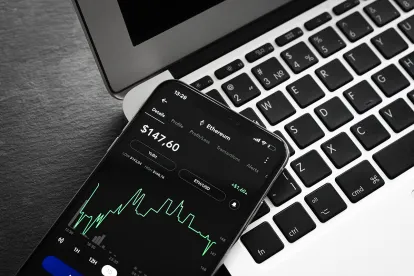The U.S. Treasury Department’s Office of Foreign Asset Control (OFAC) updated its "frequently asked questions" (FAQs) Tuesday, providing guidance relating to the sanctions against Tornado Cash, the Ethereum “mixer” it blacklisted in August, following allegations that North Korea used Tornado Cash to launder stolen digital assets. The updated information from OFAC comes as a welcome snippet of communication, allowing for clarity on the scope of the action taken against Tornado Cash, as well as providing guidance for U.S. persons affected by the blacklisting who, through no fault of their own, were caught up in federal action.
The updated FAQs provide guidance on four points: (1) the ability to withdraw funds from wallets associated with the Tornado Cash blacklist; (2) whether the OFAC reporting obligations apply to “dusting” transactions; (3) whether U.S. persons can engage in transactions involving addresses implicated in the blacklist without a license; and (4) what, more generally, is prohibited in the wake of the OFAC blacklisting of Tornado Cash.
(1) Withdrawing Funds
If a U.S. person sent virtual currency to Tornado Cash, but did not complete the mixing transaction or otherwise withdraw such virtual currency prior to August 8, 2022 (the effective date of the OFAC blacklist), such person can request a specific license from OFAC to engage in transactions involving that virtual currency (assuming such person conducts the contemplated transactions within U.S. jurisdiction).
In order to obtain this license, such persons will need to provide, “at a minimum, all relevant information regarding these transactions with Tornado Cash, including the wallet addresses for the remitter and beneficiary, transaction hashes, the date and time of the transaction(s), as well as the amount(s) of virtual currency.”
OFAC indicates that they will embrace a favorable licensing policy towards such applications, so long as the contemplated transactions did not involve conduct that it deems to be otherwise sanctionable, and that licensing requests can be submitted by visiting the following link: https://home.treasury.gov/policy-issues/financial-sanctions/ofac-license-application-page.
(2) “Dusting” Transactions
Dusting is the act of sending unsolicited and nominal amounts of virtual currency or other digital assets to third parties. This can be done in order to cause consternation on the part of the recipient, particularly in a situation where there is confusion as to the legality of receiving such funds or actions.
OFAC indicates that it has been made aware of Dusting involving virtual currency or other virtual assets from Tornado Cash, and indicates that while, technically, OFAC’s regulations would apply to these transactions, to the extent that these Dusting transactions have no other sanctions associated with them other than Tornado Cash, “OFAC will not prioritize enforcement against the delayed receipt of initial blocking reports and subsequent annual reports of blocked property from such U.S. persons.”
In short, while not a desirable transaction to take place, OFAC does not intend to pursue action against persons simply because they are the target of Dusting.
(3) Engaging in Transactions With Tornado Cash
OFAC clarified that, without explicit license from OFAC, U.S. persons are prohibited from engaging in any transaction involving Tornado Cash, including any transaction done via currency wallet addresses OFAC has identified as part of the blacklist.
Specifically, “[i]f U.S. persons were to initiate or otherwise engage in a transaction with Tornado Cash, including or through one of its wallet addresses, such a transaction would violate U.S. sanctions prohibitions, unless exempt or authorized by OFAC.”
(4) Further Tornado Cash Guidance
Referencing FAQs 561 and 562, OFAC reemphasized their authority to include as identifiers on the Specially Designated Nationals and Blocked Persons List (SDN List) specific virtual currency wallet addresses associated with blocked persons, and that such SDN List entry for Tornado Cash included as identifiers certain virtual currency wallet addresses associated with Tornado Cash, as well as the URL address for Tornado Cash’s website.
While the Tornado Cash website has been deleted, it remains available through certain Internet archives, and accordingly OFAC emphasized that engaging in any transaction with Tornado Cash or its blocked property or interests in property is prohibited for U.S. persons.
Interacting with open-source code itself, in a way that does not involve a prohibited transaction with Tornado Cash, is not prohibited. By way of example, “U.S. persons would not be prohibited by U.S. sanctions regulations from copying the open-source code and making it available online for others to view, as well as discussing, teaching about, or including open-source code in written publications, such as textbooks, absent additional facts. Similarly, U.S. persons would not be prohibited by U.S. sanctions regulations from visiting the Internet archives for the Tornado Cash historical website, nor would they be prohibited from visiting the Tornado Cash website if it again becomes active on the Internet.”
While this update to FAQs come as a welcome bit of clarity, Web3 investors, entrepreneurs, and users should continue to tread carefully when engaging with opportunities and technologies on the periphery of Tornado Cash and the accompanying OFAC action. When questions arise, it is important to seek out informed counsel, to discuss the risks of proposed actions and how best to mitigate that risk while working to pioneer new and emerging technologies.



 />i
/>i

